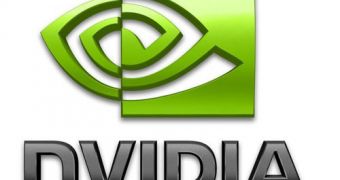NVIDIA has, for a while, been aggressively marketing the benefits of the massive parallel processing capabilities of graphics processing units (GPUs). This has led to the creation of certain HPC (High-Performance Computing) installations that employ GPU computing modules. Still, CPUs (central processing units) continue to be more flexible and have been trying to integrate parallel computing capabilities. Intel already tried, though not exactly successfully, to merge the best of both worlds in the Larrabee. Still, NVIDIA believes this tendency will persist and that, over time, GPUs will definitely gain a greater flexibility.
NVIDIA Corp.'s fellow David Kirk said in a live chat that, eventually, it will be much easier to program for GPUs, and this will not only make it more popular in supercomputers, but also on other market, though he didn't exactly elaborate on what these 'other' markets are. Currently, such units are used for video game rendering, the aforementioned HPC applications and assisting certain consumer-oriented programs.
In expanding the range of uses, the fact that GPUs cannot run Windows is a significant drawback. Still, Kirk stated that, just as not everything relies on the x86-Windows pairing, it may, eventually, become possible to run certain operating systems on special processors with highly-parallel graphics cores. Predictably, the Tegra SoC series is given as an example, even though they can only address the market for low-power mobile devices and lack advanced video cores.
"I think that we will continue to see GPUs becoming more pervasive and useful for PC platforms as well as other computing devices and consumer electronics. I am pretty sure that GPUs will become increasingly parallel and flexible and will also become more computationally efficient. We are also working to make GPUs easier to program and this involves continuing to evolve CUDA to make it more powerful," said Nvidia's fellow during the aforementioned public discussion.

 14 DAY TRIAL //
14 DAY TRIAL //